Why does the toddler hit others?
Aggression in a child can manifest itself as early as 1.5-2 years of age, for others later - at 5-6 years of age . He begins to be capricious, bite, and beat his parents and peers in kindergarten. There can be many reasons for this behavior. Let's take a closer look at why this happens.
First of all, sensibly assess the validity of negative behavior. It is clear that for every parent, their child is the best. But here it is important to understand how often and under what circumstances aggression manifests itself. He may need to consult a specialist.
- Imitating parents' behavior . The baby absorbs everything that happens in his environment and copies the behavior pattern.
- Loneliness . Many parents believe that if the child is fed, shod and dressed, then their mission is completed. But for the baby, all these blessings of life do not bring much satisfaction. He needs ordinary human warmth, attention, a bedtime story. Children are trying to somehow attract attention to themselves and are even ready to beat up a friend in kindergarten.
- Negative effects of watching cartoons and playing on a tablet or phone . Often, parents, in order to calm their child, allow him to spend long periods of time using modern “gadgets.” The unformed children's psyche suffers from this.
- Relationships in the team did not work out . For some reason, the child may not be accepted by other children, for example, he wears glasses or reads better than everyone else. This situation confuses the kid and he finds nothing better than to beat the offenders. Read about how to understand that a child is being bullied in kindergarten and what to do here.
- Perhaps the baby fights simply because he was poorly brought up .
Why does a child fight on the playground or at a party?
Children, especially from one to 3-4 years old, are still trying different models of behavior that will help them achieve the desired result. For example, a one-year-old child may fight only because he does not yet know how to express his anger in another way. And at the same time, he is still not able to control his feelings.
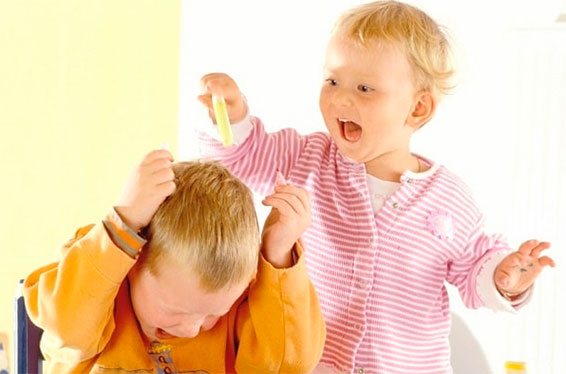
Don't scold him by punishing him and taking all his toys back. Talk through his feelings and those of the “victim.” For example: “I understand that you really liked his toy and you also wanted to play with it, right? But he didn't allow it. And then you got very angry and decided to hit him. How do you think he feels now? Look, he’s crying, he’s in pain.”
Show him by your own example what further behavior would be correct in such a situation. Approach the “victim” yourself, apologize for the child, have pity. It is better, of course, to do this together with your child. But at least this way.
No matter how banal and hackneyed it may sound, remember that when assessing what is happening, evaluate the child’s actions and behavior, and not the child himself!
It seems like everyone has already heard and knows about this, but on the playground every day you can hear “What a hooligan you are!” Let's go home, stupid! You are a brawler! Nobody wants to be your friend!”
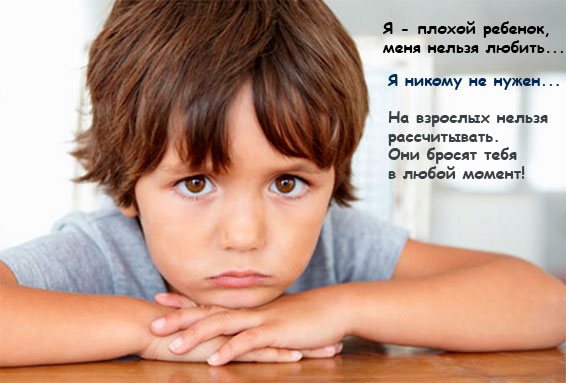
Believe me, children really believe the words of their parents. And if a parent says so, then it is so! And if this is not so, then you need to become so. And your child will only reinforce this behavior.
Is there aggression towards family?
There are situations when an obedient and calm child suddenly begins to fight and bite. There is no need to immediately start scolding and criticizing him.
First, you should understand the reasons for such negative behavior in order to choose a model of your behavior towards your baby.
Let's figure out what the reasons might be:

- Insufficient attention from parents.
The child needs the attention of dad and mom. Any toys or cartoons quickly tire a child. He needs contact with his parents: playing together, reading books or friendly conversation. When requests to play fail, he begins to fight to attract attention.We noticed a similar situation - the answer is simple: you need to devote more time to communication. There is no need to scold your child, otherwise, having ensured that he will not fight with you, you will get the opposite effect: the child will start fighting in the garden.
- Protest.
Perhaps the boundaries are too strict: many restrictions, strict parents. This causes overwork and a fight is used to express protest against the current situation.The problem can be solved by releasing the pressure a little.
- Child's inability to show love.
Not all parents are emotional; some are not inclined to lisp, kiss and hug their child. In this regard, a child who wants to show his tender feelings for his parents does not know how to do this. As a result, we get pinches and bites as a manifestation of love.Here parents should change their behavior tactics. Be more gentle, hug him more often, say kind words, that is, through your actions, teach him to correctly express his feelings.
Why is the child fighting? Let's understand the reasons
One of the reasons is the age characteristics of the child. As mentioned earlier, a child fights at the age of 1 , thus showing his protest against a large number of prohibitions that simultaneously appeared in his life.
At 2-3 years old, a child learns to express his feelings and can try to swing and hit, or show physical aggression. He studies the norms and rules of family and society, looks at what is possible and what is not, and studies boundaries. I am not yet able to control my emotions.
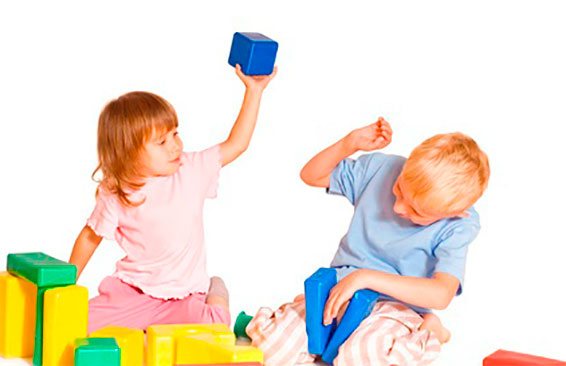
At 4-6 years old, a child increasingly uses speech to resolve controversial situations. But even at this age, the prefrontal cortex of the brain, which is responsible for volition, is still maturing, and the baby cannot always contain his passions within himself. Most often, fights at this age are one-time and situational in nature.
After 7 years, children can already control their emotions if they wish. And usually they are already familiar with the norms in society.
What other reasons could there be?
Gets attention
How do you usually react to your child's aggressive behavior? Few people can boast that they remain calm when a child is fighting. If he doesn’t receive enough of your attention, or you are usually very reserved and calm with him, then against this background your violent emotional reaction to the fight stands out greatly.
Think about it and try to answer honestly: what percentage do you show praise and scolding towards your child?
Often we forget to praise and encourage the child when he plays independently or starts a joint game with his brother. We often take this for granted and do not react to it.
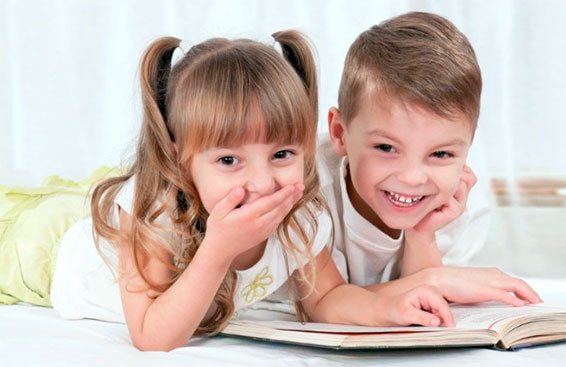
But if our baby took a toy from a friend or pushed someone, then here we definitely will not remain silent!
Lesson learned: Try to communicate calmly but forcefully that physical aggression is unacceptable, while also being more emotional about encouraging your child's good behavior.
Family pattern of behavior
One of the reasons for pugnacity is not knowing other ways to react. If in a family all conflict situations are resolved by swearing, if physical punishment is used in the family, then the child accepts this behavior as adequate and the only correct one.
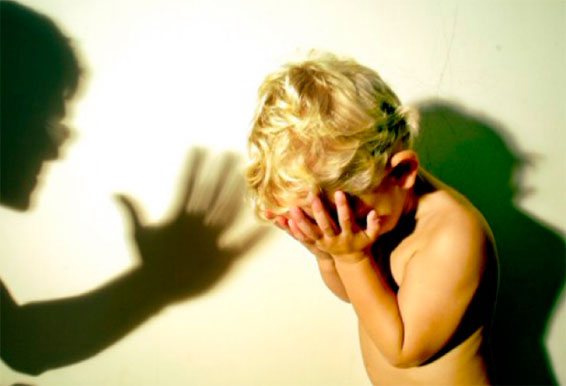
How do you resolve conflict situations in your family? What does your child see? That's what he adopts.
No boundaries
I have already said that one of the reasons is too many prohibitions in the baby’s life. At the same time, the lack of prohibitions and boundaries is also one of the reasons for a child’s aggressive behavior.
Now it has become very fashionable to raise a child in a “democratic environment.” Moreover, each parent interprets this differently. And many people mean by this that a child is independent almost from birth and can do whatever he wants, and the absence of boundaries and rigid frameworks will help him grow up as a “free personality.”
Believe me, this is a terrible mistake. A child cannot independently decide what is good and what is bad. That's why he has parents. And our task is to ensure the safety of our child.
Dr. Komarovsky also discusses this well. You can watch his opinion on this issue in the following video:
If the baby does not feel that you are protecting him by setting boundaries (you can play by throwing soft cubes, but you cannot play by throwing stones, it’s dangerous!). Then the child begins to actively search for these boundaries.
Will my parent stand up when I fight? Or he will say again: “Let him learn to figure it out on his own.” If a child hears this, then his behavior will border even more on various offenses. The baby is waiting - when will his parents tell him: “Stop! We are responsible for you. And we set boundaries. Thus creating a field of activity in which you can feel calm and safe.”
The myth of the “real man”
You've heard them speak proudly on the playground or among other parents. “My son is a real man! Can he stand up for himself? Unfortunately, such phrases are more often said when a child protects his things and his interests with the help of force. This is what is considered “masculinity.” It is sad.
After all, a real man should be able to resolve conflict situations with words and actions, and not with the use of physical force.
How to react?
Remember the important rule: “Violence begets violence . If you don't want your child to fight, don't set a negative example for him. So what should parents do, how to behave correctly:

- Knowing your baby's habits when he is angry, it is not at all difficult to guess when he will start fighting. There is no need to wait and calmly watch as he hits you. Prevent this moment, hold his hand so that he cannot hit you.
- The “No” method. Effective with children from two to six years old. The main thing is to use this method correctly. If after each attack of aggression you simply repeat “you can’t”, it will only be an empty sound.
Psychologists recommend a step-by-step model of behavior in this situation:
- Get close to your child and grab his or her wrist firmly.
- Seriously and looking him in the face, say the phrase: “You can’t fight!”
- Do not overdo it with severity, do not raise your voice, but speak neutrally. The main thing is to make it clear that this is not a punishment, but a standard of behavior that should be observed.
- Without releasing your child's hand, silently look away and count to twenty. If he wants to talk to you or break out: be silent and remain calm.
- After that, turn to face him and repeat: “You can’t fight!” Then release your hand.
- If the baby hits you right away, repeat everything from the very beginning, without missing a single point.
If your two-year-old child has completely stopped obeying or a three-year-old child is constantly throwing tantrums, you should familiarize yourself with the recommendations of psychologists and the characteristics of this age.
How to stop fighting in kindergarten?
- The first is your reaction to what is happening .
There is no need to demonstrate aggression yourself: shout, spank. Try to pull yourself together and talk calmly with your child, find out why he offends his kindergarten friends. Perhaps there really are serious reasons: they don’t accept you into the team, they call you names, and so on. In this case, you need to eliminate the cause: talk with the teacher, the parents of the offenders. - Don't show anger , just show that the situation has upset you.
- In no case go too far , using the phrases: “You don’t love me,” “You’re a bad boy,” and so on. This can cause serious distress for the child.
Explain to your child his feelings
Sometimes the child himself does not understand why he got into a fight. Try to talk to your baby more often. Tell me how best to behave so as not to upset loved ones.
A very effective way is to play out the situation in the form of a fairy tale, where the main characters will be your child and his peers. Tell us about the feelings of each character, what he experiences if he is offended. Game moments are always better perceived by children than the usual moral teachings.
Stick to the established rules

If you have established a ban, do not deviate from it under any circumstances. Watching a cartoon or playing a computer game - the time indicated is 30 minutes, which means exactly that much, even if friends came or it was a family holiday. A rule is a rule and must be followed.
Learn to manage emotions
It is difficult for a child to understand his emotions; often a reaction in the form of aggression is a call for help . Teach your child to understand his feelings. When he cries or is capricious, ask him simple questions: “Are you hurt?”, “Are you offended?” and similar according to the situation. He should see your concern and readiness to help at any time.
What to do if a child fights? How to stop a child from fighting?
To do this, you need to teach your child to cope with his aggression. And for this, at a minimum, the child must learn to determine how he feels and accept his feelings. You can be angry, but you can’t fight !
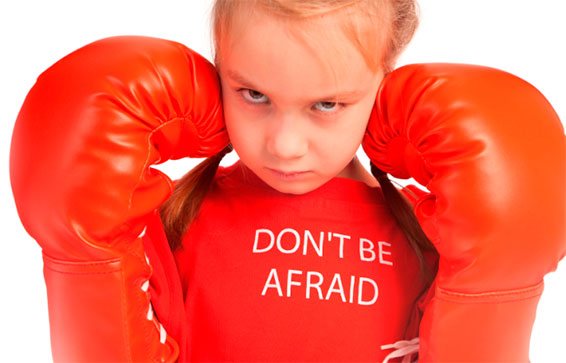
Let's look at it with an example . There was a fight. Your actions:
- Show your child that you love him anyway. Whether he is evil or good, we always love our children. This is very important for them to know and understand. To do this, sit down next to him so that you are at his eye level. And try to be calm yourself. This will give your child a sense of support. And it will help you calm down.
- Voice your child's feelings: “You're really angry right now, right? It is very unpleasant when your favorite toy is taken away from you. Or are you angry because you don’t want to go to bed yet?” Listen to him. Say you understand.
- Next, remind us that there are boundaries. “You really wanted to return the toy and you couldn’t figure out how to push your brother? But fighting is unacceptable. How else could you get your toy back?”
- Discuss possible ways to respond to conflict situations. Learn different phrases with your child to improve interaction with peers. For example:
- “Sorry, but I need this toy myself”;
- “Please give me this thing, I really need it”;
- “You hurt me, don’t wave the car next to me like that anymore,” etc.
For better memorization, play out different situations using toys. Call for help from fairy tale therapy . Discuss with your child options for interaction in a group of children.
Pay attention to the wonderful book “ Fairytale Therapy. We educate, develop, free the child from psychological problems ,” author Gulnara Lomakina. The book is dedicated to parents who want to understand and help their child.
What to do if the child does not obey the teachers in kindergarten?
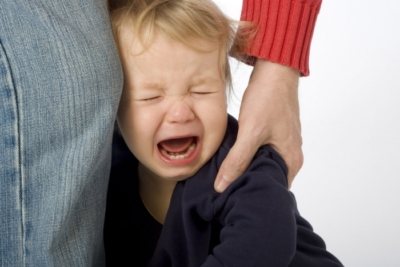
Educators often try to fit the behavior of children in a group into one model that is convenient for them: obedient, non-conflict. If your child has not adapted to this norm and shows individuality, he automatically becomes an object of dissatisfaction with the teacher. Here it is necessary to listen to both sides and come to a solution that suits everyone.
Your task is to figure out why this happens . Perhaps this is a protest against certain conditions, a response to pressure from the teacher. If you cannot independently determine why your baby does not listen and does not do what the kindergarten teachers tell him, consult a psychologist.
Measures and prevention
What to do if a child fights in kindergarten, at home, on the playground with neighboring children? Recommendations:
- We remove negative emotions. Children take their cue from the pictures they see and the words they hear. Often the baby is surrounded by cartoons with fights, then he can follow the example of his favorite characters. When you see an aggressive act in a cartoon that your child is watching, you should definitely discuss it. The main conclusion is that evil is punished, only bad heroes fight and swear. Show an example of a good deed, choose a book or movie with a constructive solution to a problem.
- Until 2-3 years old, a child cannot restrain his emotions; his feelings are expressed in behavior. It is not surprising that children often snatch toys from each other and cry if they are unable to get a new item for them (we recommend reading: what should parents do if their child cries in kindergarten?). At this age, a child may take a swing at his mother or tell her “Go away, you’re bad.” You need to tell your child that you can’t do this. The baby is tired, overexcited, and sometimes it is very difficult for him to resist aggressive emotions. Hug him, tell him that you understand his hurt and want to help.
- Use the active listening method. Express feelings differently. Help your child understand his feelings. Instead of the phrase: “You are a bad boy, I will punish you now,” you should say: “You are angry with Vanya because he did not give you a scooter.” Surprisingly, spoken feelings can nullify an aggressive outburst. It is important for a little person when his feelings are understood.
- Don't be afraid to show your dissatisfaction. By the age of 4-5, children understand the feelings of their parents. If the child got into a fight, then you can say “I am very upset by the action, I am sad that my son solves problems in this way.” When expressing feelings, do not take on the child’s personality, talk about your feelings.
Advice from psychologists and Dr. Komarovsky
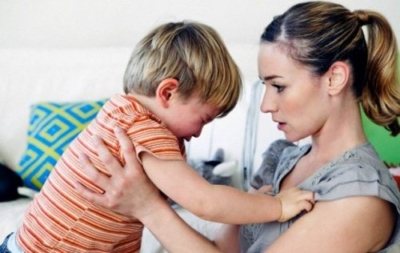
Psychologists believe that the main reason for childhood aggression is the irritability of parents, primarily mothers. According to statistics, four out of ten children have at least once tried to use force against loved ones, in half of the cases - the problem acquired catastrophic proportions when the child became a real tyrant in his family. Therefore, aggression in any form must be eradicated.
According to Dr. Komarovsky, aggression at 2-3 years old cannot be explained by age alone and petty hooliganism . Usually this is insufficient speech development, which makes it difficult to find words to describe your feelings, chronic lack of attention from adults, and sometimes symptoms of a nervous or mental disorder.
The main thing in raising a child is attention, mutual respect, and a calm emotional background in the family. The child's behavior reflects the microclimate of the family. Observe your baby's behavior to spot a problem in time.
It is normal to encounter problems in kindergarten, the main thing is to solve them in a timely manner. We recommend that you read the materials on what to do if a child is often sick, whether it is worth taking a sick child to kindergarten and how to increase his immunity, about what to do if a child does not sleep, does not eat or refuses to attend the institution, and also about how to teach him to stand up for himself.











